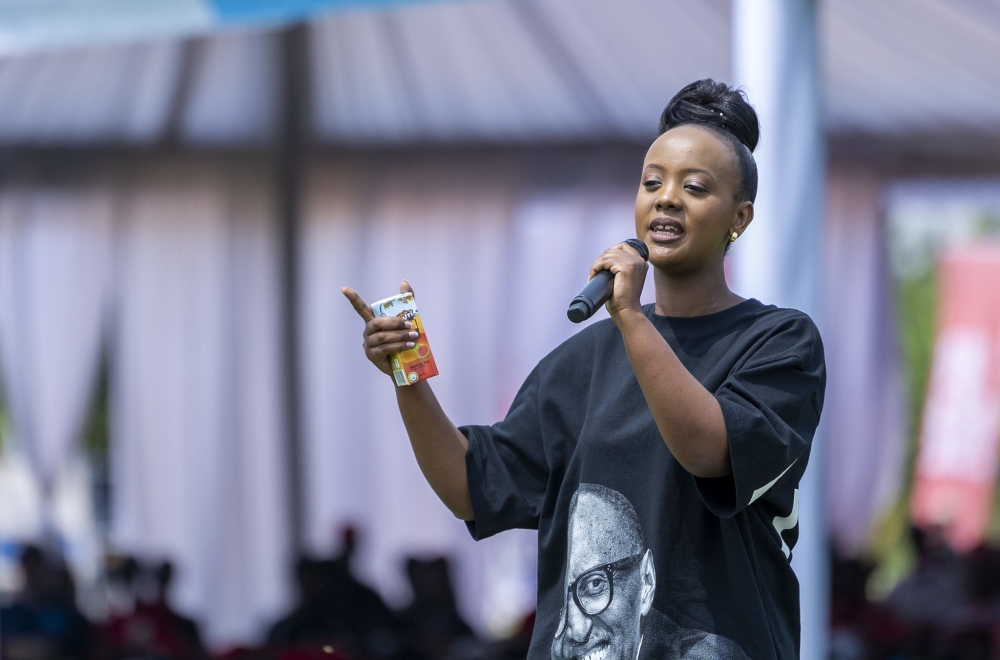

Stopping the Genocide against the Tutsi was the ultimate sacrifice made by the RPF Inkotanyi, but managing the aftermath presented unimaginable challenges.
One of these challenges was raising the orphans left behind by the thousands of genocide victims.
Some of these children, too young to fully comprehend their loss, found themselves heading households and caring for young siblings for those who had them.
When schools reopened, these young guardians faced the heart-wrenching decision of temporarily leaving their homes to pursue an education.
During a presidential campaign rally in Bugesera, musician Ingabire Jeanne Butera, known to many as Knowless, shared her story.
Knowless, an orphan of the Genocide against the Tutsi, recounted her painful journey—a life devoid of joy in the aftermath of the genocide. She spoke of the profound grief and despair that overshadowed her early years.
Yet, through the efforts of the post-genocide government under the RPF, shines of hope began to emerge.
Butera highlighted how the government funded her education at every level, enabling her to rise from the devastation. She expressed heartfelt gratitude to President Kagame for his pivotal role in transforming Rwanda from a land of ashes into a hope of progress and development.
Her story is not unique; it echoes the experiences of many Rwandan children who survived the genocide and now contribute to the nation's growth.
The genocide survivors were not the government's only concern. The state also had to care for the children of perpetrators who were imprisoned for their roles in the genocide, as well as the offspring of RPA soldiers and the former regime’s soldiers who perished in battle.
The government, dedicated to unity, ensured that no one was left behind.
Alongside establishing a fund to support genocide survivors, a special fund under MINALOC paid school fees for those who were not survivors but were too poor to afford tuition as well.
I am among those orphans who survived. We had no hope for school, food, or a future. At school, many of us were supported by various institutions that covered our fees and provided school materials.
Schools were instructed not to send home orphans because of unpaid fees. Heartbreakingly, some orphans stayed at school year-round, having no families to return to.
We express our deep gratitude to the RPF and its chairman. Because of their unwavering support, we were able to attend school, graduate from university, and continue the cycle of life. Today, we are parents ourselves.
Though we lacked biological parents, the government became our parent. This sentiment is shared by thousands of orphans of the genocide against the Tutsi.
Butera's testimony represents the collective voices of genocide survivors and other orphans. It makes us deliberate: what would have happened to those thousands of children if the government hadn’t cared for them?
This is why the RPF Chairman has an unbreakable bond with the people he rescued and raised. Butera didn't just speak for herself; she shared the story of all orphans of the genocide against the Tutsi. Her testimony is our testimony.
The author is a communications specialist.


